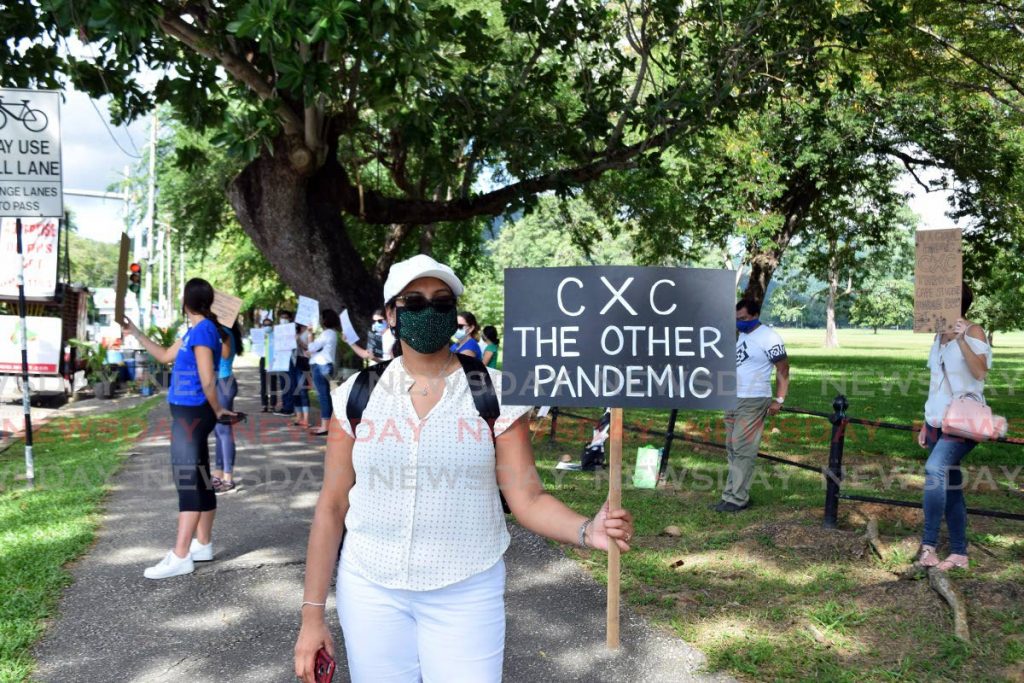CXC grade issues unresolved

THE EDITOR: Due to the intervening holiday season, there has been relative quiet on the CXC front since mid-December. The public, however, should not confuse this with the issue being settled or appropriately resolved.
There remains a plethora of outstanding grievances, made worse with each passing day as the future of too many students remain in abeyance.
Firstly, the review regime implemented by the Caribbean Examinations Council continues to be a bone of contention with respect to both the length of the process and its substance. On Sunday October 18, CXC chairman Sir Hilary Beckles at a press conference called to discuss the conclusions of the Independent Review Team, asserted that the turnaround time for the return of submitted requests for reviews would be one week.
Yet, 11 weeks later, on January 4, CXC issued a perfunctory statement suggesting only 80 per cent of requests for review had been processed, with no indication on when the remaining 20 per cent will be completed. There has clearly been a significant breakdown in the review process leading to a disgraceful delay, yet there has been no acknowledgement of this fact by CXC neither any explanation.
On the substance of the review process, with the majority of reviews returned, the data suggests that to a large extent there have been a few changes to grades, but in nearly all cases, these reviews only yielded a one grade point upward adjustment.
For example, a student who unmeritoriously received a Grade III in a CAPE subject, and who benefited from the review, would only now see a Grade II, which is certainly an improvement, but in many instances, remains unacceptable when juxtaposed against the student’s capacity and actual performance in components of the examination.
The sporadic and unreliable nature of the review process clearly demonstrates that the review regime is fatally flawed, as it has not remedied, in a substantial way, glaring failures of the original marking process.
This is compounded by the fact that a cloud continues to linger over the review regime as important questions remain unanswered, including who conducted the reviews.
Clearly, the individuals who took part in the original marking process should not be reused for the review process, as it is inappropriate for one to be called upon to review one’s own work. But if new persons were contracted to review scripts, do they have an acceptable level of experience both in the secondary school system and in the correction of examinations? Without this crucial information, it is difficult for the public to accept the outputs of an almost clandestine process.
Secondly, the communication of the Council, which was an issue highlighted in the Independent Report, continues to be weak. As aforementioned, self-imposed deadlines are missed without explanation or apology, and there continues to be no recognition on the part of the members of that branch of the Caribbean education ecosystem that students have been substantially, materially affected.
In a vacuum of information, fear preponderates. As the days pass, that is the reality confronting many students and their parents as their applications to university, in many instances, continue to be delayed, while the slow process plays out, or other students, already at university, cannot reapply for lost scholarships without the improved CAPE grades.
At a time where many students in the region cannot get back to the classroom, and so the ability to cover the same amount of content as in previous years is hindered, it is impractical to hold an examination with the same format and expectations as previous years. It is also unthinkable to seek to do so with a delayed timetable, such that remarkable dislocation is caused to the 2021/2022 academic year.
I hope that the ministries of education will continue to bring pressure to bear upon the council so that this issue may be equitably and quickly resolved. The expiry date for this iniquity has long passed.
KHALEEL KOTHDIWALA
Lead Student Advocate, Barbados

Comments
"CXC grade issues unresolved"